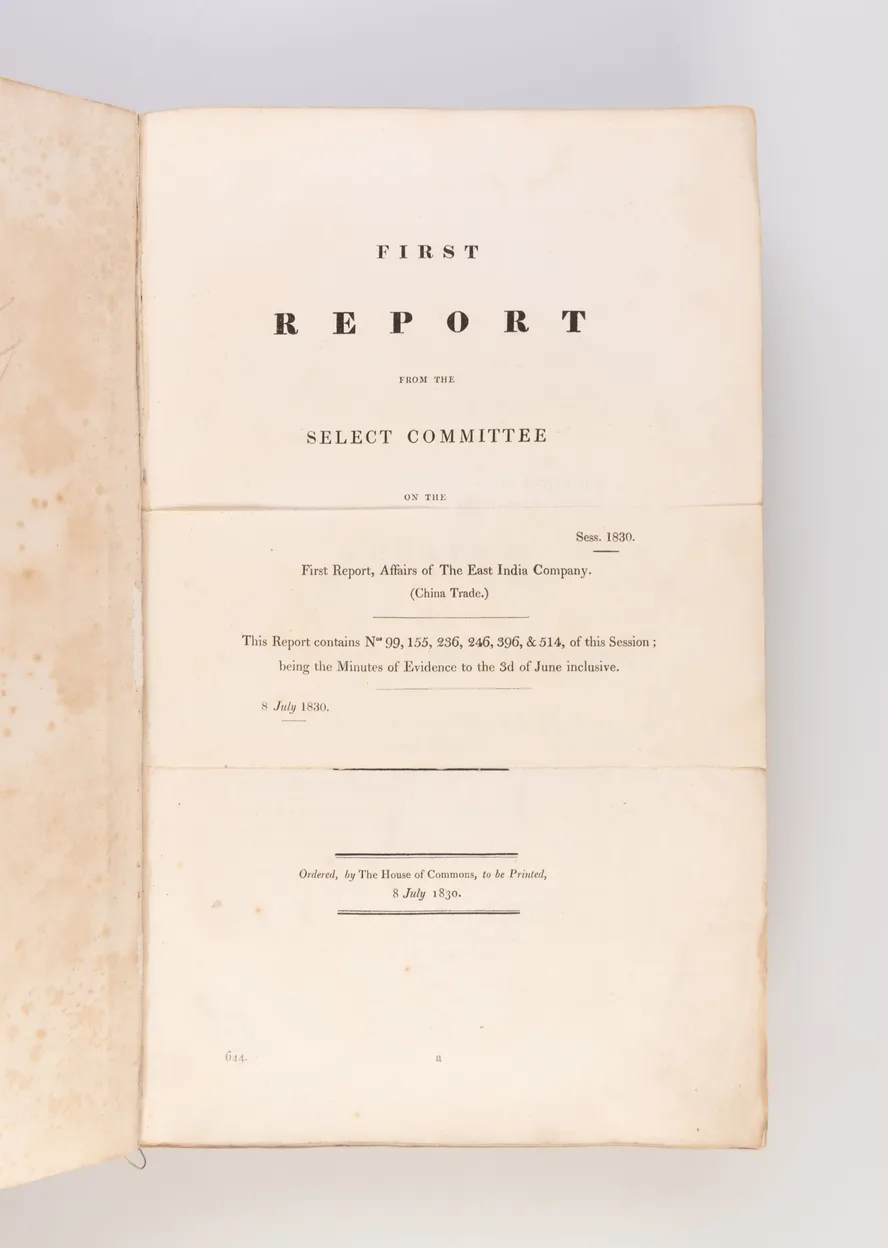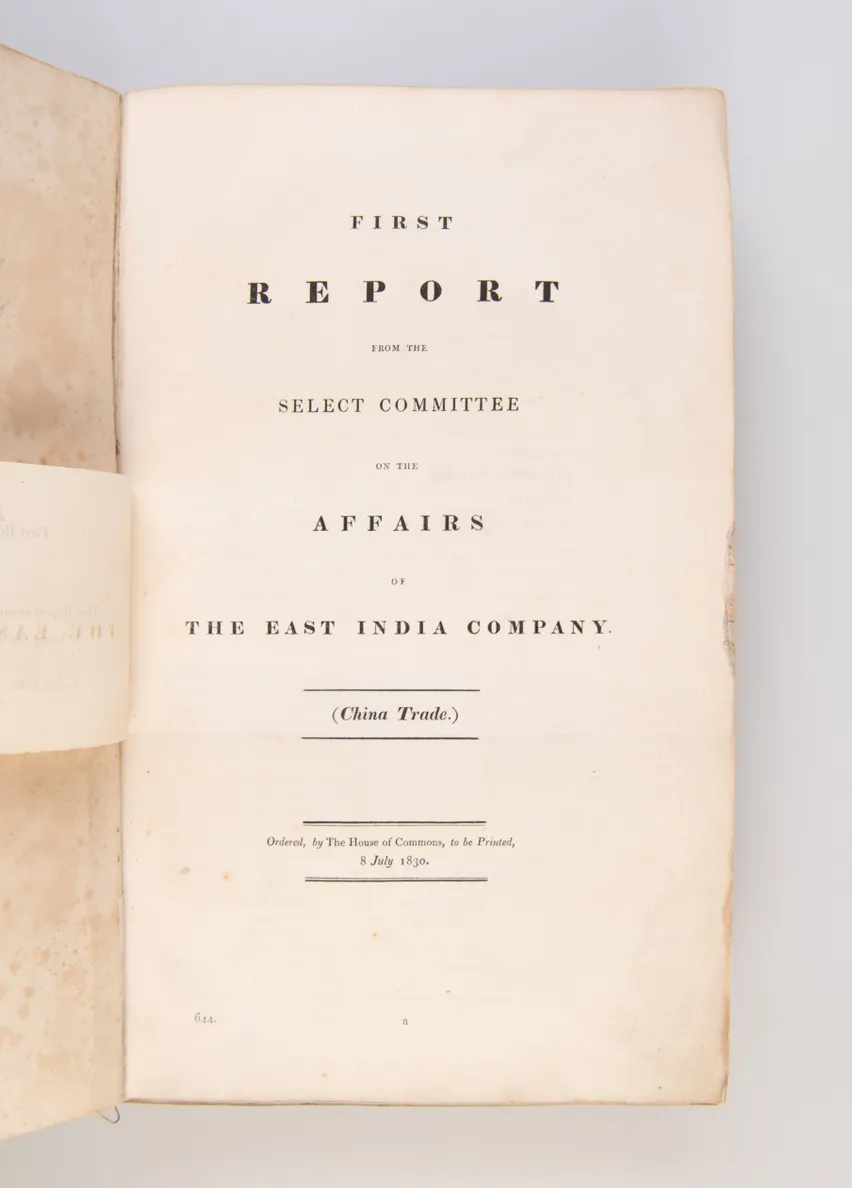This is the last large-scale inquiry into the operations of the East India Company in China before they were stripped of their trading monopoly in 1833.
"The people of China are represented to be intelligent, industrious and persevering; and although said to be in some measure independent of foreign trade, owing to their success in agriculture and to their extensive inland commerce, yet highly sensible of its value, and anxiously disposed to cultivate it. This disposition, indeed, is strikingly manifested in the Chinese settlers on the Eastern islands, whose object in emigrating is the accumulation of wealth with a view to returning into their own country, to which they have a strong attachment... (p. iv)
The detailed questions and answers lasted through 6 sessions from February 15th to June 3rd. They cover a wide range of issues relating to trade in Canton, in particular tea. Much focus is also given to the American trade and the possible effects of the abolition of the East India Company's exclusive privilege to trade from Britain. Opium is mentioned but most of the questions of a technical nature (different types of opium, where is it smuggled from, how is it packed, how is it sold and distributed, do the Chinese authorities know about it (p. 134ff &166ff). However, the legality is questioned at the beginning: (Question 290): "Is not the opium trade in China, which you state to exist to the extent of 13,000,000 or 14,000,000 of dollars a year, entirely an illicit trade? - Entirely prohibited by the Chinese government. (Question 291): Is it not, therefore, a trade which the East India Company, through its servants, can take no interest whatsoever? - The Company, I think are interested in the trade so far as regards the Indian revenue. They prohibit their servants in China from having any connexion with it".
The overall assumption is that all trade benefits the people and that the Company does its best to insure that all trade is conducted both legally and honourably (p. 31). Rare in the trade.




